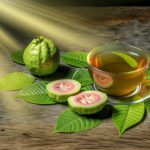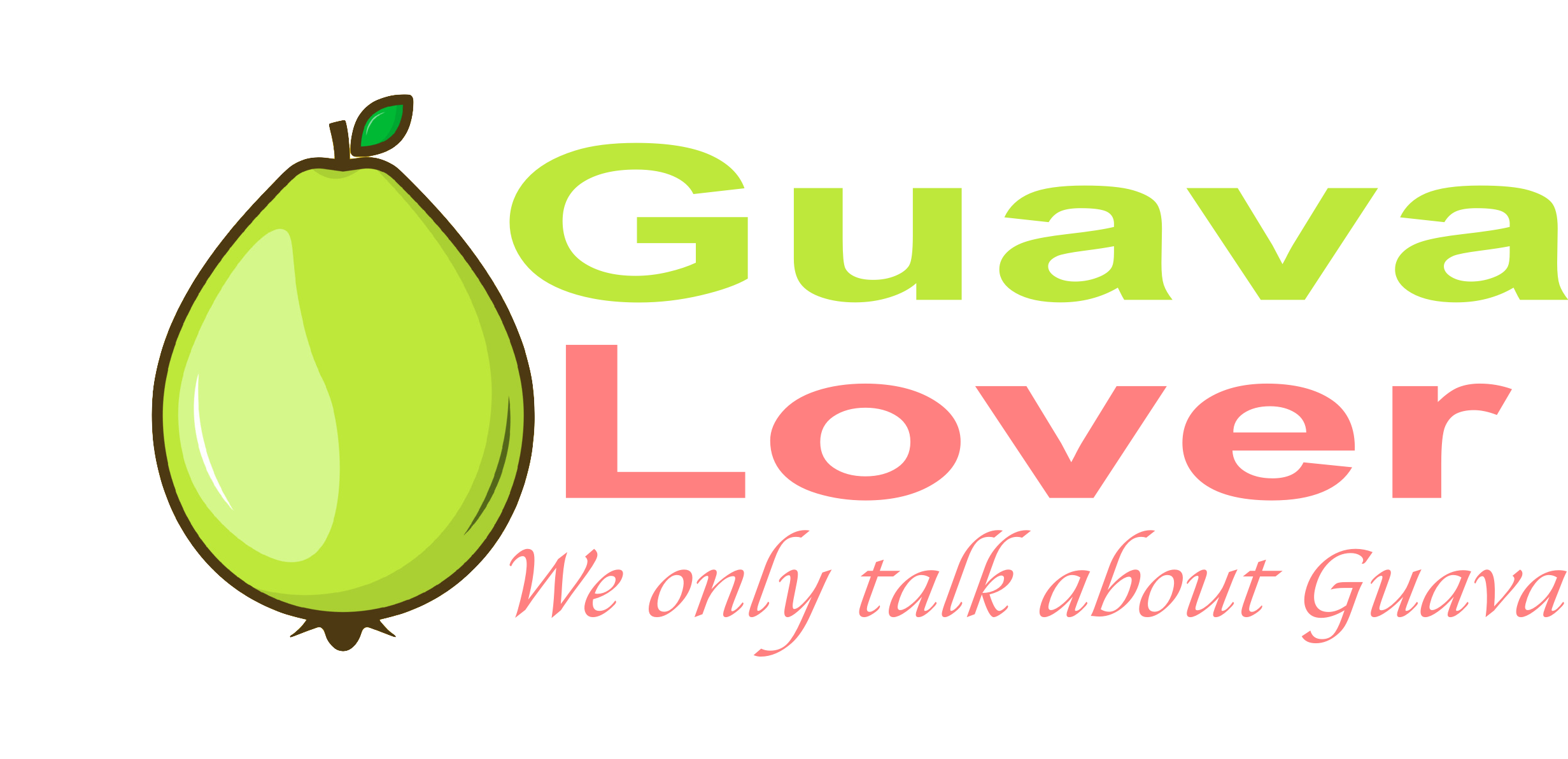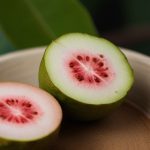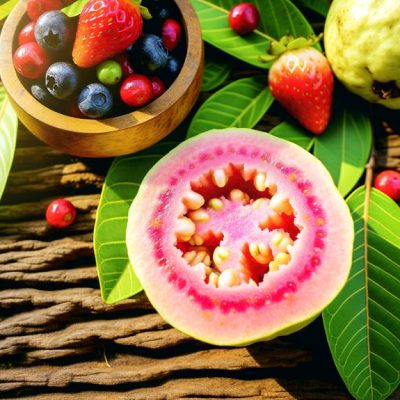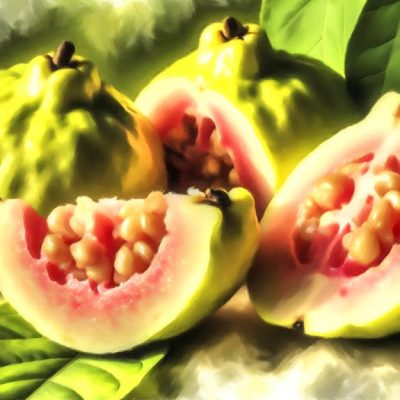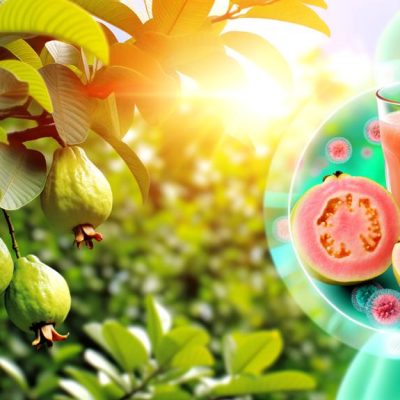Comparative Study of Guava in Various Traditional Medicine Systems
In your search for a comparative study of guava in various traditional medicine systems, you’ll find that guava holds a significant place in Ayurveda, Traditional Chinese Medicine, Unani Medicine, Native American Medicine, and African Traditional Medicine. It’s esteemed for its cooling properties in Ayurveda, digestive benefits in Traditional Chinese Medicine, balance restoration in Unani Medicine, diverse healing uses in Native American practices, and multifaceted therapeutic properties in African cultures.
Each tradition harnesses guava for its unique blend of vitamins, antioxidants, and healing properties, showcasing the plant’s versatility and adaptability across different healing systems.
Guava Usage in Ayurveda
In Ayurveda, guava is highly regarded for its multifaceted medicinal properties, making it a versatile ingredient in various traditional remedies. Ayurvedic texts highlight guava’s therapeutic benefits, categorizing it as having a cooling effect on the body, aiding digestion, and balancing the doshas, especially Pitta and Kapha. The fruit is rich in vitamin C, antioxidants, and dietary fiber, making it a valuable addition to Ayurvedic medicinal recipes aimed at improving overall health and well-being.
One popular Ayurvedic remedy involving guava is a decoction made from guava leaves, known for its anti-inflammatory and antimicrobial properties. This decoction is often used to alleviate digestive issues, treat coughs, and boost immunity. Additionally, guava fruit pulp is utilized in Ayurvedic formulations to enhance skin health, promote hair growth, and support respiratory health. The synergistic combination of guava’s Ayurvedic properties with other herbs and ingredients underscores its significance in traditional medicinal practices.
Guava Benefits in Traditional Chinese Medicine
Guava, recognized for its diverse medicinal properties in Ayurveda, also holds significance in Traditional Chinese Medicine for its unique therapeutic benefits and applications. In Traditional Chinese Medicine, guava is valued for its contributions to overall well-being and specific health concerns.
- Herbal Tonics: Guava is often used in Traditional Chinese Medicine to create herbal tonics that aim to strengthen the body, promote vitality, and restore balance. These tonics are believed to enhance energy levels and support the body’s natural healing processes.
- Digestive Health: Traditional Chinese Medicine acknowledges guava for its positive effects on digestion. The fruit is thought to aid in relieving digestive discomfort, promoting healthy digestion, and supporting gut health. Guava is often recommended for individuals experiencing digestive issues or seeking to improve their overall digestive wellness.
Guava’s versatility in Traditional Chinese Medicine highlights its adaptability and effectiveness in addressing various health needs, particularly in the domains of herbal tonics and digestive health.
Guava in Indigenous Healing Practices
Within various indigenous healing practices, the utilization of guava showcases its remarkable healing properties and cultural significance. Indigenous communities have long revered guava for its diverse therapeutic benefits, utilizing different parts of the plant for various remedies. The healing properties of guava encompass its rich vitamin C content, which boosts the immune system and aids in fighting off infections. Additionally, guava leaves are often used to alleviate digestive issues and skin conditions due to their anti-inflammatory and antimicrobial properties.
Moreover, guava holds cultural significance within indigenous healing practices, symbolizing resilience, protection, and vitality. The fruit’s presence in rituals and traditional ceremonies reflects its role as a symbol of health and well-being in many indigenous cultures. The deep-rooted connection between guava and indigenous healing traditions highlights the plant’s holistic importance beyond its medicinal properties. Embracing guava in traditional healing practices not only underscores its therapeutic value but also honors the cultural heritage and wisdom passed down through generations.
Guava Remedies in Unani Medicine
The integration of guava remedies in Unani Medicine highlights a profound intersection of traditional healing practices with a rich tapestry of medicinal knowledge. Unani healing properties of guava have been recognized for centuries, with its usage aimed at restoring the balance of the body’s four humors. Guava’s astringent taste in Unani medicine is believed to have a cooling effect on the body, making it beneficial for conditions such as diarrhea and dysentery.
Guava Remedies in Unani Medicine:
- Guava leaves are commonly used in Unani medicinal preparations to alleviate gastrointestinal issues.
- Guava fruit extracts are utilized to reduce inflammation and promote wound healing.
- Guava seeds are often incorporated into Unani remedies for their antimicrobial properties, aiding in the treatment of various infections.
In Unani medicine, guava is valued not just for its nutritional benefits but also for its diverse therapeutic applications, showcasing its versatility as a medicinal plant.
Guava Applications in Native American Medicine
Native American medicinal practices have long encompassed diverse applications of the guava plant, integrating its healing properties into traditional remedies passed down through generations. In indigenous beliefs, guava is often viewed as a sacred plant with various medicinal uses. Native American tribes utilized different parts of the guava plant, including the leaves, fruits, and roots, in herbal remedies to treat ailments such as stomach issues, wounds, and respiratory problems. The guava plant was also valued for its high vitamin C content, making it an essential component in boosting immunity and overall health.
Compared to other traditional medicine systems, Native American medicine emphasizes a holistic approach to healing, focusing on the interconnectedness of the body, mind, and spirit. Guava’s incorporation into herbal remedies highlights the deep-rooted connection between nature and healing in indigenous cultures. The use of guava in Native American medicine showcases how traditional practices continue to honor the medicinal properties of plants in treating various health conditions.
Guava Therapeutic Uses in African Traditional Medicine
In African traditional medicine, guava is highly esteemed for its multifaceted therapeutic uses, reflecting a significant history of plant-based healing practices across diverse cultures. The guava healing properties and medicinal uses in African traditional medicine are profound and have been passed down through generations.
- Antioxidant Rich: Guava is valued for its high antioxidant content, which helps combat oxidative stress and boost overall health.
- Digestive Aid: The fruit and leaves of the guava plant are utilized to aid digestion, relieve stomachaches, and address gastrointestinal issues effectively.
- Immune Booster: Guava is recognized for its immune-boosting properties, attributed to its rich vitamin C content, which helps in fighting off infections and enhancing overall immune function.
These aspects showcase the significance of guava in African traditional medicine, where it plays a vital role in promoting well-being and treating various ailments effectively. The utilization of guava highlights the deep-rooted connection between nature and healing practices in African cultures.
Frequently Asked Questions
Can Guava Be Used in Combination With Other Herbs or Remedies in Traditional Medicine Systems?
Yes, guava can be part of herbal combinations in traditional medicine systems, enhancing therapeutic benefits. Its versatility allows for synergistic effects with other herbs or remedies, creating potent remedies for various ailments and promoting overall health.
Are There Any Specific Rituals or Ceremonies Associated With the Use of Guava in Traditional Medicine Practices?
In various traditional medicine systems, guava is not only valued for its healing properties but also for the cultural practices and healing rituals surrounding its use. These ceremonies often involve blessings and offerings to enhance its efficacy.
How Does the Geographic Location of Where Guava Is Grown Affect Its Medicinal Properties in Different Traditional Medicine Systems?
When guava grows in different locations, its medicinal properties vary due to geographic variations. These differences impact herbal combinations in traditional medicine systems. Cultural practices influence how guava is utilized, making it unique in each region.
Are There Any Potential Side Effects or Contraindications to Using Guava in Traditional Medicine?
When using guava in traditional medicine, be cautious of potential interactions and toxicity risks. It’s essential to consult with a healthcare provider before incorporating guava into your regimen to mitigate any adverse effects.
Do Different Traditional Medicine Systems Recommend Different Parts of the Guava Plant for Medicinal Purposes?
Different traditional medicine systems utilize various parts of the guava plant for its medicinal benefits. These recommendations stem from cultural traditions and specific plant usage practices. Comparative analysis reveals the diversity in approaches across different systems.
Conclusion
To sum up, the comparative study of guava in various traditional medicine systems reveals its versatile therapeutic properties across different cultures.
Ayurveda utilizes guava for its digestive benefits, while Traditional Chinese Medicine focuses on its antioxidant properties.
Indigenous healing practices recognize guava for its immune-boosting effects, and Unani Medicine uses guava for its anti-inflammatory properties.
In Native American and African Traditional Medicine, guava is valued for its healing properties for various ailments.
Overall, guava proves to be a valuable and versatile remedy in diverse traditional medicine systems.

